Parliament rejects India’s ‘illegal’ Kashmir move
Warns that New Delhi’s move may lead to a dangerous escalation that will have far reaching impact
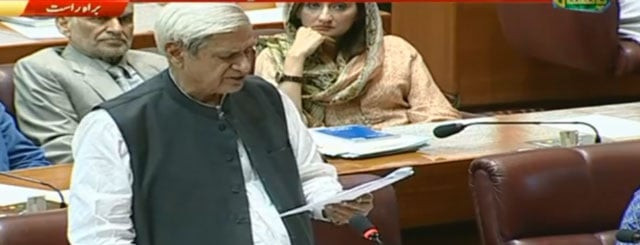
The session, which was called on Tuesday to debate the future course of action in the wake of India's August 5 decision to scrap Kashmir's special status, unanimously passed a resolution moved by Kashmir Committee Chairman Syed Fakhar Imam.
The resolution rejected India's "illegal, unilateral, reckless and coercive attempt" and "other regressive measures" aimed at altering the disputed status of Indian-occupied Kashmir (IOK) as enshrined in the United Nations Security Council (UNSC) resolutions.
It also denounced "deployment of additional troops and atrocities in Indian-occupied Kashmir" and "the recent surge in unprovoked firing and shelling on unarmed civilian population across the Line of Control (LoC) and use of cluster bombs by Indian forces in Azad Jammu and Kashmir".
The parliament, in its resolution demanded that India must stop the "brutalisation of the people of IOK through killings, torture, arbitrary arrests, enforced disappearances, mass blinding by pellet guns, and use of rape as an instrument of war."
It called for lifting of communications blackout in occupied Kashmir and an end to the "prolonged curfew regime". It asked India to "stop its ruthless cordon-and-search operations, releases the Kashmiri leadership and restores civil liberties and fundamental freedoms of the people of Jammu and Kashmir".
The resolution said the "enforcement and legitimacy of resolutions of the UNSC can never be diluted by unilateral actions" and demanded that "India honours its own commitment to the UN Security Council, Kashmiris and the international community".
It also called on the UN Security Council to take cognisance of the matter and the UN Human Rights Council to constitute a commission of inquiry. It also urged the Organisation of the Islamic Cooperation (OIC) to "convene an extraordinary high-level session immediately" for an end to repression in IOK.
The parliamentary resolution asked the Inter-Parliamentary Union (IPU) and the world parliaments to "censure the Indian parliament's role in violating the Security Council resolutions and facilitation of unlawful actions in IOK".
It called on the international community "to warn India to refrain from undertaking any irresponsible, unilateral actions that may lead to a dangerous escalation that will have far reaching impact not only for South Asia but the entire world".
The lawmakers resolved that Pakistan would continue its diplomatic, moral and political support of the Kashmiris in their struggle for their right to self-determination and reiterated that the Kashmir issue should be resolved through the UN plebiscite.
Taking the floor, Foreign Minister Shah Mehmood Qureshi earlier told the lawmakers that the National Security Committee (NSC) has decided to downgrade Pakistan's diplomatic relations with India and also suspend trade between the two countries.
Qureshi said August 14 – Pakistan's Independence Day – would be observed to express solidarity with the Kashmiris and the slogan of "Kashmir benega Pakistan" would be raised all across the country. "While India's independence day of August 15 would be observed as a black day," he added.
He said the debate in the joint session of the parliament reflected the thinking of parliamentarians on Kashmir. Pakistan, he said, condemned India's decision to end the special status of Kashmir.
"The Modi government has further complicated the issue of Kashmir for the Kashmiris and the international community." India, he said, has always made an effort to suppress the Kashmir issue by making different excuses and by saying that it is a bilateral issue.
"However, it has now made Kashmir an international issue as even people in India are saying that history would tell that Modi has made a big mistake and taken a non-democratic step of abrogating the article which would dent the country's federal structure.
"Even [pro-India leaders like] Mehbooba Mufti and Umer Abdullah are now saying that their elders might have made a mistake by siding with India. Leaders of Hurriyat Conference like Ali Geelani, Umer Farooq and Yasin Malik had a clear stance but now other leaders are also against India's decision."
He said Pakistan has conveyed its concerns to the United Nations Secretary General on Indian violations of the LoC and human rights abuses in held Kashmir. "I conveyed my concerns to the UN Secretary General and asked him to intervene in the matter by writing a letter to him," he added.
He said ambassadors of P5 countries were summoned to the Foreign Office and Pakistan's concerns were conveyed to them. "After the Indian decision, the joint session of parliament was called to send a message to Kashmiris that Pakistan will continue to extend moral, diplomatic and political support to Kashmiris," he said.
Minister for Railways Sheikh Rashid said Indian Prime Minister Narendra Modi had made a wrong decision by revoking Article 370 and 35A in occupied Kashmir. "Indian move would unleash a new movement in Kashmir.
Rashid said Kashmiri struggle would go ahead as Modi has ended all options for talks on Kashmir. "He is only interested in creating Indian hegemony. The step by India has effectively ended the Shimla agreement and the Line of Control (LoC) no more in exists," he said.
Pakistan Peoples Party (PPP) Co-chairman Asif Ali Zardari said the Indian decision is an event as far reaching as the Fall of Dhaka in 1971. He said the only silver lining to this whole scenario is that India's decision to strip Kashmir of its special status has vindicated the two nation theory.
"Kashmiri leadership now believes in the two-nation theory of Quaid-e-Azam Muhammad Ali Jinnah. Pakistan was created so that Muslims could spend lives according to the teachings of Islam," he added.
He, however, warned that India is closely watching the economic and political situation in Pakistan. "Kashmiris are being oppressed and we have to show solidarity with them." He said in present situation, he would have gone to Russia, China, United Arab Emirates and other countries to seek support.
MNA Khawaja Asif said India did not respond to Pakistan's call to engage in talks. Every Pakistani desired peace in Afghanistan and the government should take people of Pakistan into confidence over its policy for Kabul, he added.
"India is following the policies adopted by Israel in Palestine. Pakistan is economically vulnerable and is asking for aid from other countries. It looks as if India would push Kashmiris on the Pakistani side across the LoC," he said.
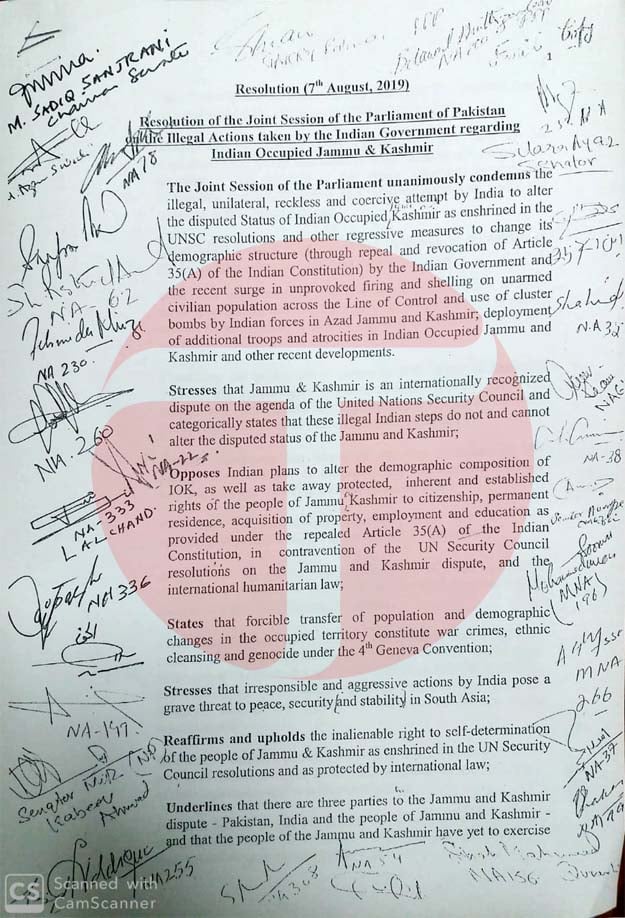
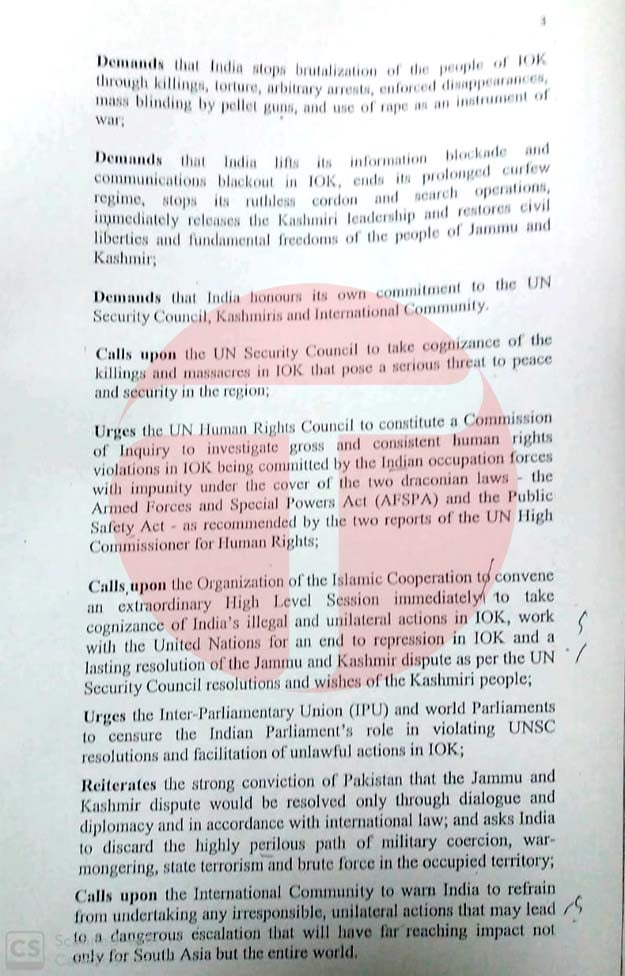
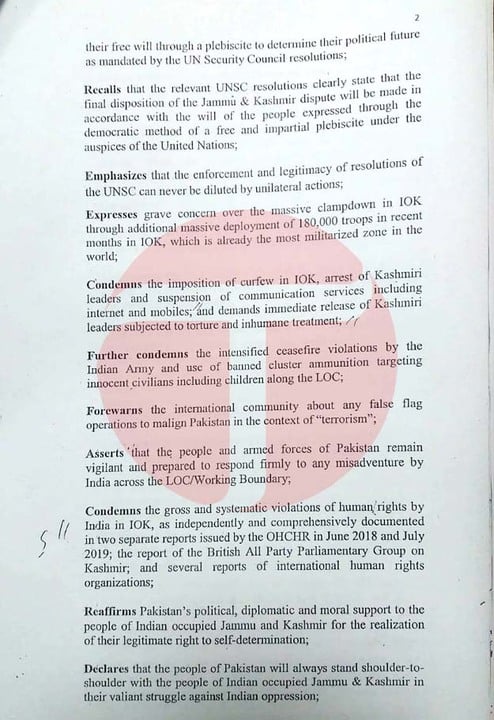





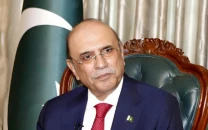
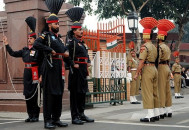












COMMENTS
Comments are moderated and generally will be posted if they are on-topic and not abusive.
For more information, please see our Comments FAQ